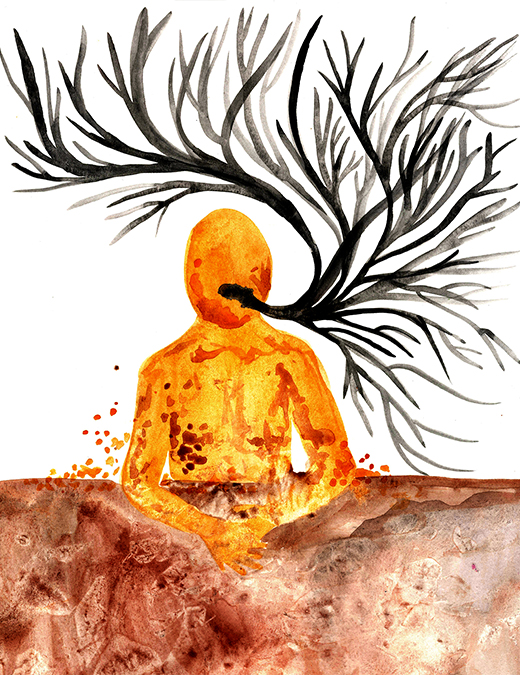Toh Swee Koon was an interpreter for the Japanese during the Japanese Occupation in Singapore from February 1942 until the end of the war. This included interpreting for the Japanese military police (Kempeitai) during the “Double Tenth” incident on 10 October 1943, when the Kempeitai arrested and tortured fifty-seven civilians and civilian internees in the old YMCA building on Orchard Road. A total of 15 men were tortured to death, and one was sentenced to death by the Kempeitai. The “Double Tenth” incident took place because the Kempeitai mistakenly believed that the internees were involved in a sabotage mission on Singapore Harbour that led to the sinking of seven Japanese ships. This operation was later established to be Operation Jaywick, a raid mission conducted by British and Australian commandos.
The “Double Tenth” war crimes trial took place from mid-March to mid-April 1946. Toh was 38 years old at the time of the trial, and was charged for torturing and ill-treating civilians who had been arrested and interrogated by the Kempeitai. He, along with seven other Kempeitai men, were identified as “torturers of the worst type” and sentenced to death. However, as Toh was a British citizen, the Military Court was not liable to try him. His death sentence was not confirmed by the Deputy Judge Advocate-General of the Allied Land Forces, and Toh was subsequently tried in a civilian court. He was found guilty and given a 4-year jail sentence.
Toh resided in a room at House No. 68, North Boat Quay, but his permanent address was in Fukien, China. Toh was educated at Anglo-Chinese School in Singapore. After completing his studies in there, he was employed as a Clerk in Santei Shokai, a Japanese firm based in Singapore, where he became fluent in Japanese. Toh could already speak English, Malay, Japanese, Hokkien, Teochew, and a little Cantonese – languages that were subsequently valuable to the Japanese during the occupation.
After the war broke out, Toh was suspected of being a Formosan (Taiwanese) and was arrested and detained in Changi Prison with other Japanese. When the Japanese occupied Singapore, Toh and other Japanese were recovered by the Kempeitai, and were brought to the Kempeitai Headquarters at Beach Road. As there were few persons in Singapore who could speak the Japanese language, Toh was transferred to the YMCA building a week later and was ordered to assist as an interpreter.
In her petition, Toh’s wife claimed that Toh was unhappy as an interpreter for the Japanese as he had to witness the brutal beatings by the Kempeitai. Toh’s wife claimed that Toh had made attempts to resign but was rejected by the Kempitai, and had to serve until ordered otherwise.
During the trial, Toh was identified by many witnesses as an interpreter for the Japanese during interrogations. He was also identified by Walter Neubronner, an undertaker, who claimed that Toh spoke to him about a burial. Some internees identified Toh as one of the men who participated in the torture conducted by the Kempeitai. This included beatings, water treatment, tying internees with rope and even giving electric treatment to one internee.
Toh consistently denied being part of any interrogation where torture was present, and gave evidence about Japanese Kempeitai officers giving light rattan beatings. He also denied speaking to Neubronner about any burial and claims it was a case of mistaken identity. Toh also maintained that he had only acted as an interpreter and should not be held responsible for the atrocities committed by the Kempeitai men.
After the end of the war, Toh assisted the War Crimes Liaison Officer in the Malaya Command and Singapore District by providing them with information about the Kempeitai from 1942 to 1945. For this, Toh received a letter of commendation from Major Mervin Cecil Frank Sheppard and two letters asking for a mitigation of his sentence from the “Double Tenth” trial.
While Toh provided information to the courts about Kempeitai activities and the Double Tenth incident, his written and oral evidence was doubted as it was contradicted by the other accused Japanese Kempeitai men as well as witnesses. The judge eventually sentenced Toh to death with harsh words, stating, “You, Toh Swee Koon, were something more than a bully; you were a traitor as well.”
As a British citizen, however, Toh was not liable to be tried by the Military Court. The Deputy Judge Advocate-General did not confirm Toh’s death sentence. Toh was subsequently tried in a civilian court. The three prosecution witnesses, Choy Koon Heng, Tan Yew Cheng and Khoo Hock Chew, were the same internees that claimed that Toh committed acts of torture on them. Toh responded by denying the accusations and alleged that he had been mistaken for other interpreters working in the YMCA. In sentencing, Mr T. T. Russel, Second District Judge, found Toh guilty and remarked that he accepted the complainants’ evidence. Toh was sentenced to four years’ imprisonment for causing hurt to the three Singaporean residents.
